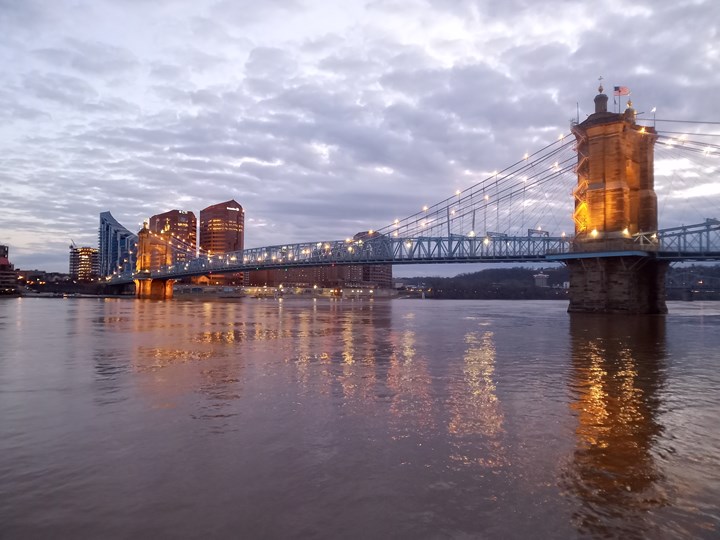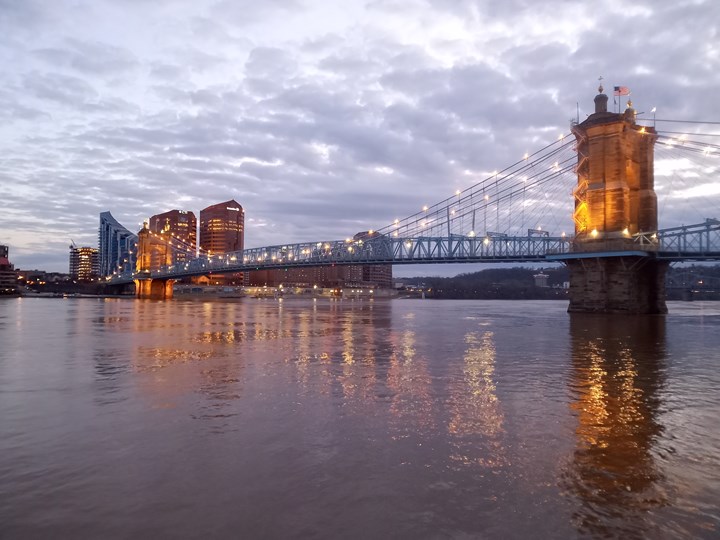
At New Recycling Summit, Participants Engage and Collaborate
A recycling summit in Covington KY, hosted August 23-25 by Baerlocher, drew leaders from polymer and additive production, equipment supply, packaging manufacture, and trade organizations.
Plenary sessions covered each part of the plastic recycling supply chain, sharing successes and challenges alike. Topics ranged from the chemistry of polymer degradation to development of ASTM standards. Attendees participated in three case studies, collaborating in small groups to solve real world recycling challenges. A tour of Baerlocher’s facility in nearby Cincinnati was also included.

Baerlocher’s recycling summit was held in Covington, KY August 23-25.
At the conclusion of the summit, I spoke with Baerlocher USA CEO Ed Hall.
Q: How do you feel about the 2022 recycling summit, now that it is complete?
A: I came away feeling pretty high on the event. I met so many people—I know a lot of people in the plastics industry, but not in these parts of the value chain. So it’s going to be really cool to see these guys again at K Show, NPE, or back here again next year. Hopefully we do this again and get a solid group of industry leaders together to figure this out, because I think there is still a lot of confusion in the recycling industry. Each company has their own ideas, but it doesn’t feel cohesive throughout the value chain.
Q: What is the value of putting this on, for Baerlocher?
A: A lot of people will ask “what’s in it for us?” and “when are we seeing the payoff?”, but I told everybody on our team on Monday morning: this is teaching, learning, and collaborating. That’s all. There’s no selling coming in. There’s no buying coming in. There’s no recruiting coming in. This is this is truly a foundation – laying event. Because if you look at the value chain, I don’t think everybody fully understands what the other piece of the value chain needs. So, we’ve tried to do what we can to supplement what the APR and other industry organizations are doing.
Q: How do you create an environment where leaders are willing to be open, and say they have a problem they don’t know how to solve, or that they can’t predict what will happen next year?
A: I think the way you open it up is that you open up yourself. And there were some challenges, the schedule had to be moved around. There’s the perfect event, and then there’s the event that’s well organized but these things happen. Psychologically, that gets people to laugh a little and open up.
The case studies really helped with that. The first day, everybody was a little tight. Then we were doing the case studies and people start joking around and trying to solve problems together. And everybody just let down their guard completely. They’re willing to share problems they’ve had, they’re willing to input ideas. Our case study method for learning, which we started at PVC Tech Summit, is what differentiates our summits from what everyone else is doing. You’re not just hearing about what happened, you’re helping create the end of the story.
Q: What is a particular conversation that started here, that you think is going to continue in the weeks to come?
A: There were quite a few, but —and I think this is going to be the hardest one—I’d really like to see the industry figure out how to get these bottle rebates done, the 10 cents per bottle, because that seems like a no-brainer. I remember we used to go out and find the glass bottles as kids, make 40 cents and go buy something. It’s illogical to me that we don’t have that for plastic. The energy in this bottle and the value is not fully appreciated. I’d like to see that happen, and I heard a lot of energy around it.
Q: Anything you heard this week that was surprising?
I thought the group might come in a little more proud of the things they’re pulling off. And everybody’s proud of what they’re pulling off, but there was there was still a hint of “we need to do more”. Almost all the presentations that talked about policy said this is great, but we probably need to do more. That acknowledgement as a group was definitely the biggest surprise to me. I thought it was going to be breaking down those barriers, but people were already there.
I’m not sure they did realize they were there until they were hearing everybody else. The first few presentations were a little more reserved.
Q: What changes would you like to see in a 2023 summit?
A: I would like to bring in someone who is truly an advocate for getting rid of plastics completely. I would like to see a presentation and a real debate between the two sides of the story. I want to lay the foundation, but our goal is not to form all the opinions. Because, if we are all in agreement, let’s say, and it’s not about improving, then there won’t be any innovation. So you have got to hear it, but a lot of people just ignore it.
It’d be nice to move them a little bit too. To say: “All right, if we could solve the problem, if we can improve on collecting it and using it, would that change your mind?” Because if we get people who are that passionate, and you can help them move things along with people who are passionate on the other side, that can be really powerful.

Leave a Reply